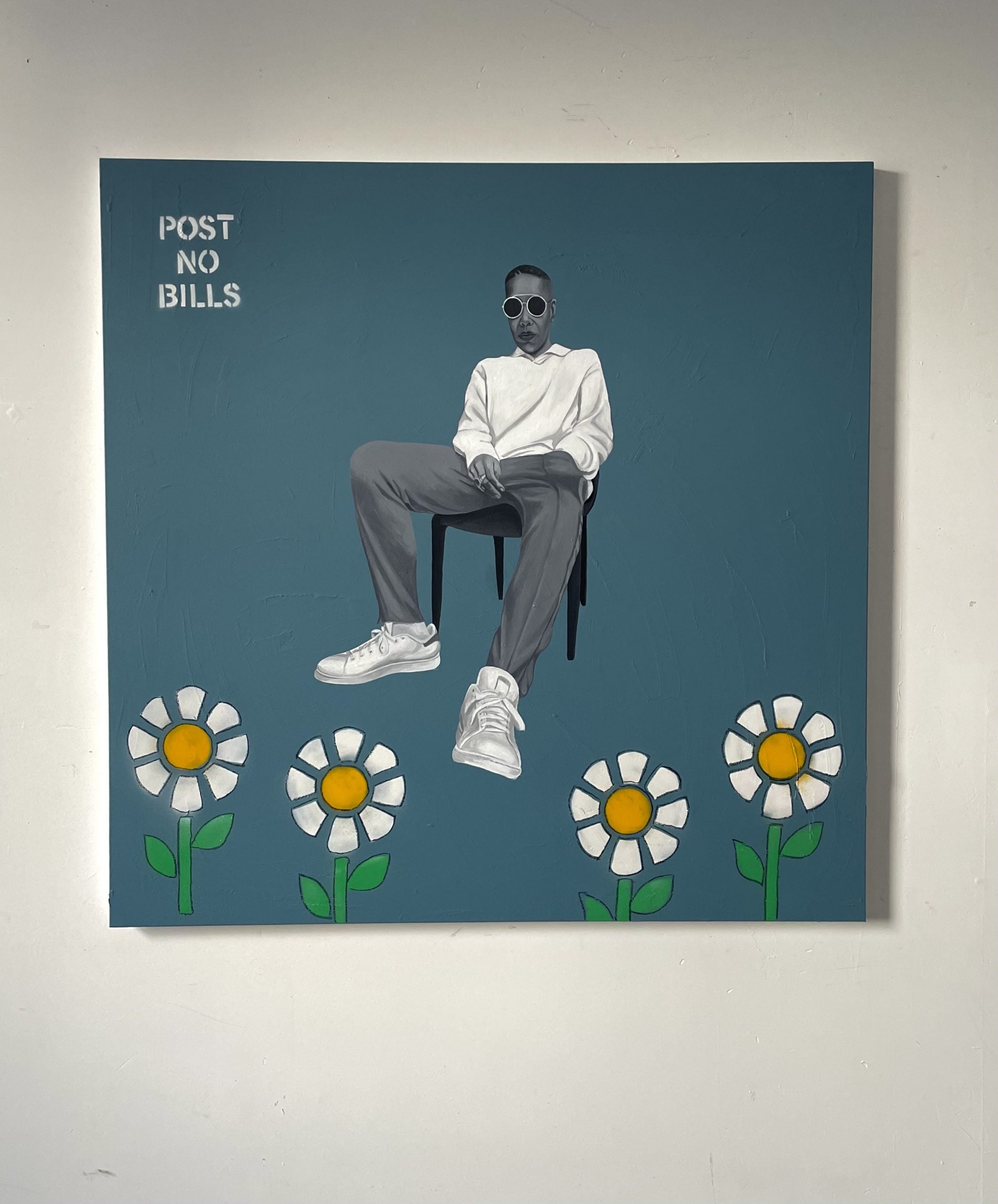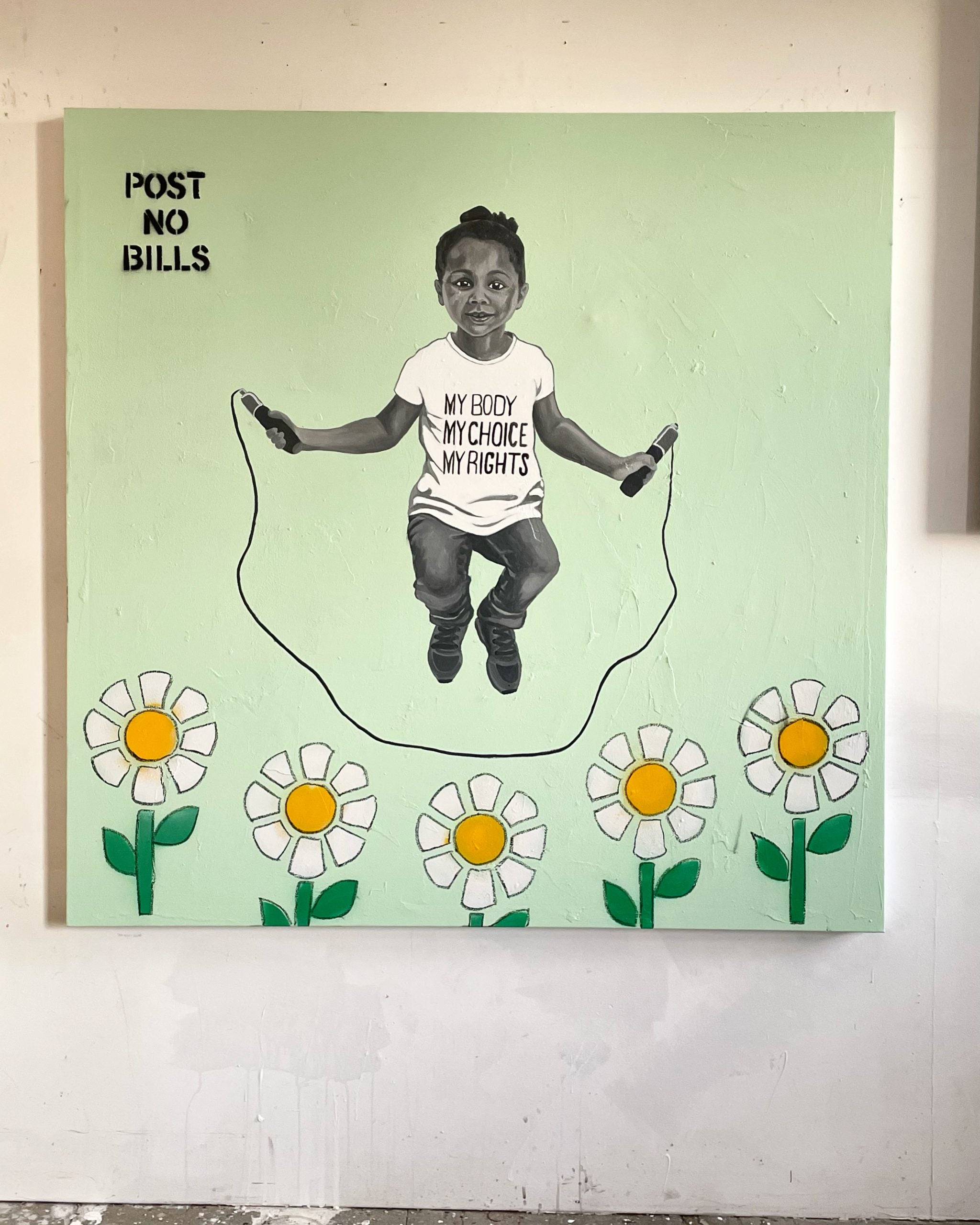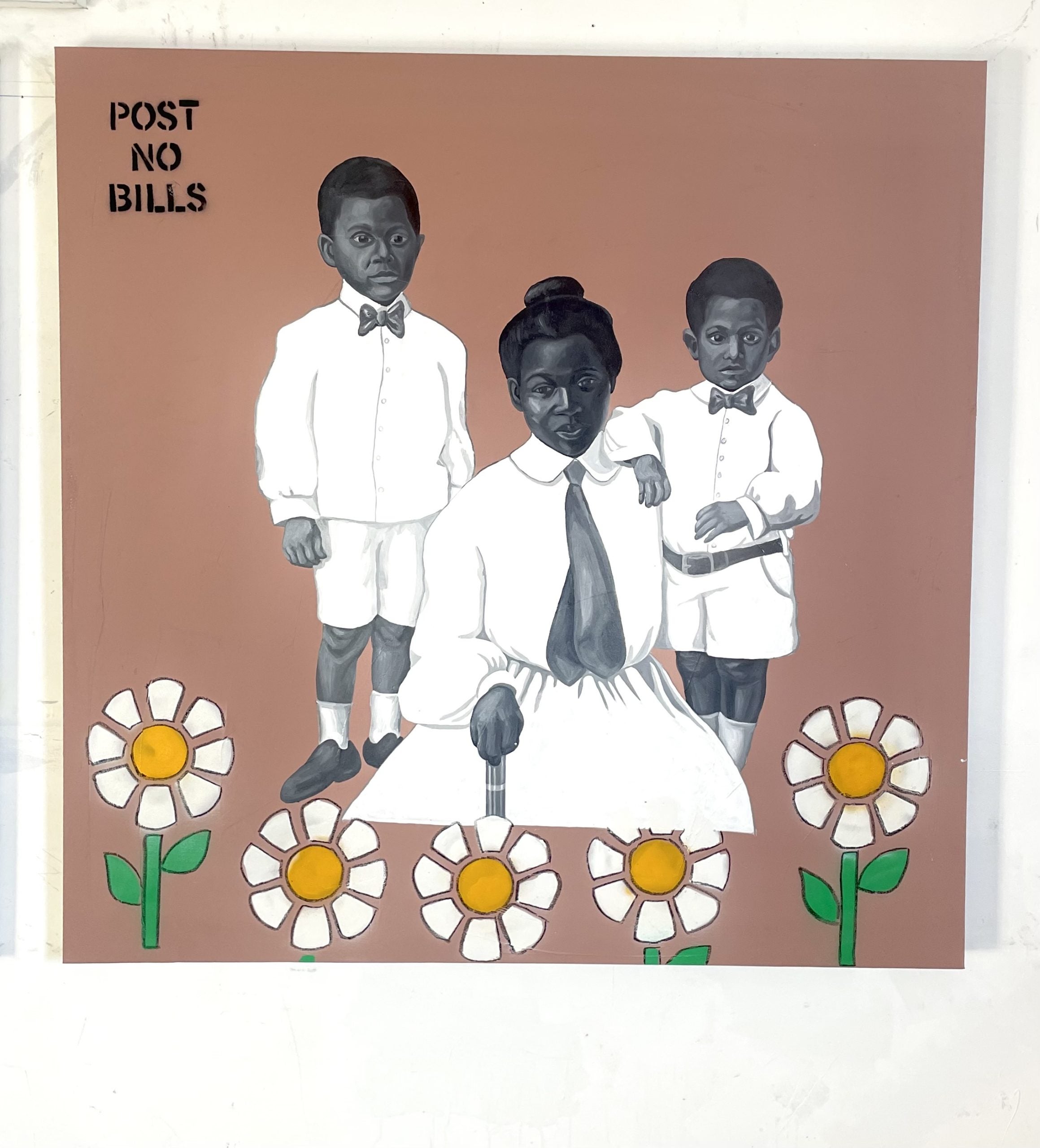
After 20 years of sacrifice, hard work, and New York City-bred grit, Guy Stanley Philoche is giving credit and honor where it’s due.
The Haitian-born visual artist had to fight to become a full-time creative from a young age. A chile of immigrant parents who valued pensions and job security, the prospect of leaning on creativity as an avenue to financial gain seemed impractical.
“I told my parents I got into an art school. And they said, ‘We love you, but you are way too smart to waste your brain on painting,'” Philoche shared with ESSENCE. “But this is what I wanted to do.”
Just 17 years old, armed with nothing but his talent and $5000, Philoche set out to make a way on his own. He got his citizenship, applied for student loans to pay for arts education Paier College of Art and later Yale University, then relocated to New York to make a life for himself as an artist.

“New York’s been really good to me,” he says, now 20 years into his career. Though the earliest days were not the easiest – self-promoting, painting series that went largely ignored – he has learned that patience pays off.
“Sometimes I have a series where I think it’s amazing, but my audience is not ready for it,” he recalls. “I had one series called No Comment. It was a really powerful series I painted 15 years ago about powerful women who had high-profile jobs but just felt like they couldn’t get ahead because they weren’t part of the boys club. Amazing portraits of women with duct tape over their mouths.”
At the time, Philoche could barely sell nor scarcely display the pieces, which received feedback as being a bit too controversial. But fast forward to the shift in public consciousness surrounding women’s voices in the wake of “Me Too” and the overturn of Roe V. Wade, and buyers began to see the works in a new context.
“It’s just one of those things where timing is everything, and also having patience. If you believe that you’re doing something pretty amazing, you just have to wait because sometimes your audience is just not ready for it.”

His latest series, Give Us Our Flowers, is a celebration of identity and honor to those who often don’t receive the accolades the artist feels they truly deserve – from impactful historical figures to current-day culture-shifters and to everyday people making a way for themselves and the next generation. Though it’s bright and celebratory, featuring Black subjects comfortably looking straight at the observer, it was born of personal tragedy in Philoche’s own life.
“Last month, my good friend – he’s also my lawyer, he’s also one of my big collectors – passed away,” the artist revealed. “It really hit me hard. It was one of those things where therapy wasn’t working.”
“I go to the wake and it’s super packed. The funeral is just completely packed. He was loved by so many people. But I was listening to what people were saying, and they kept praising him; ‘He was a great attorney. He was so funny.’ And they all kept saying, ‘I wish I had told him that when he was alive.'”
Unable to shake his mounting grief through his traditional means, Philoche took to his studio and began painting his friend’s image repeatedly.
“I just kept painting his portrait over and over. I don’t know why. Eventually, something kind of clicked. I thought, ‘You know what? I’m going to give him his flowers.'”
Painting his friend’s image with flowers all around it, Philoche began to think he was onto something. Who else has passed on unsung? Who deserves their flowers now, while they can still metaphorically smell them?

While historical icons like James Baldwin and Jackie Robinson came to mind, so did culture shifters like Lena Waithe. Then, Philoche was struck with inspiration by the every day.
“I’m at Central Park, going for a run. Once I got done, I just sat there to take a deep breath in. And I looked up and just saw all these beautiful nannies with these white babies.” Thinking of the sacrifices these women make, providing childcare services to wealthy families, things once again clicked for him.
The collection expanded to feature Black women of the past and present, Black children through the years, all looking peaceful, joyful, set in pastels and surrounded by daisies – a sentimental flower for Philoche.
“The reason why I use daisies is my mom. That’s her favorite flower,” he revealed. “It is just me trying to give her homage and praise her and give her flowers too by not necessarily painting her portrait, but to let her know that I’m constantly thinking about her all the time.”

Far from finished, Philoche has his eyes set on adding Nina Simone and Dapper Dan to the series, among others.







“I just want people to see us in a good light,” he said. “I think too many people see us as just entertainers, and that bothers me a little bit,” he added, noting that there is so much more to our collective story.
“That’s the reason why I did [the figures] in black and white, because I really want you to focus on the subject matter. But, also I really want you to focus on the flowers, see the simplicity of them, see how they just uplift us.”
A selection of Philoche’s Give Us Our Flowers series will be on display at New York’s Cavalier Gallery beginning December 16th. For more information, visit the website HERE.





